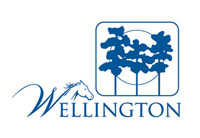Wellington’s Equestrian Preserve Committee met Wednesday, June 7 and focused on the review and recommendations for the village’s Equestrian Plan of Action.
The committee has been working on the action plan for the past year. “In June of 2016, we gave you this plan of action,” Wellington Projects Manager Mike O’Dell said. “We asked you to go through it. In July, we talked about some of the milestones that were there, and you all talked about some of the issues associated with the milestones.”
The committee members also reordered some of the points of priority, including that they wanted to move forward with an economic study focusing on the economic impact of the horse industry on Wellington.
Historically, the economic impact of the horse industry has been analyzed from a Palm Beach County point of view. A Wellington-centric housing and economic study contract is expected to be approved within the next few days, with a target date of February 2018.
The study, Committee Chair Jane Cleveland explained, will focus on business generated, with an intent to pinpoint the impact on real estate values.
As the equestrian community has expanded, O’Dell explained, home values have increased in relation to how close they are to show grounds.
O’Dell focused the committee on the goals in the draft of the plan of action. “It says that the goal of the plan is to support the expansion of the equestrian competitions within the EPA [Equestrian Preserve Area], while seeking additional lands for public use as an equestrian park,” he said.
However, there are difficulties with the second part of the statement, since 93 percent to 95 percent of the EPA is in private ownership. There really isn’t space for public lands, unless the Village of Wellington were to purchase land. Currently, canal rights of way are the only public lands that Wellington has in that area.
Wellington is predominantly a bedroom community, O’Dell said, and the equestrian industry has become a part of the fabric of Wellington. It is interconnected; the industry is in need of housing and open space.
The lifestyle of the community has also been a part of the conversation.
“The word lifestyle is not there, but I’d like you to think a little bit about it, because as we start to look to repositioning of some goals and objections, maybe some of the milestones need to be shuffled around,” O’Dell said. “Does that goal set the tone for this document?”
The equestrian lifestyle and having a world-class Wellington, Cleveland said, are two goals, with neither outweighing each other.
Cleveland explained that there has to be the land to support the horses, to which Vice Chair Dr. Kristy Lund added that the horses support the venues. The two need to be balanced, they explained.
“It’s a double-edged sword, since the venues are privately owned,” Committee Member John Wash said. “You’re almost held captive, to some degree, to the needs and wants of the venue owners.”
The committee has become more proactive instead of reactive, Cleveland explained. However, the focus is on what the industry needs and how the village can be supportive.
“We went way out of our way to call the venues to come talk to us, because, how do we support the industry without knowing what they need?” Cleveland asked. “In the grander scale, what does that industry need to be successful in the long run?”
Wellington, O’Dell said, is a bedroom community trying to sustain an industry that has a great impact on the community itself. The industry is seasonal, with the possibility of growth.
Though the season is currently four or five months, the season could be expanded from at the beginning and the end, O’Dell said, avoiding the summer when it is just too hot for the horses.
Wellington adopted its trail plan, O’Dell said, and has worked to improve the equestrian trails in Wellington, recognizing which trails needed the most work.
The trail that is a western boundary for Grand Prix Village, Cleveland said, is a beautiful, pretty trail. The Wellington Environmental Preserve at the Marjory Stoneman Douglas Everglades Habitat, she said, is fabulous for riding in, but needs more access points.
In July, O’Dell said, village staff is putting together something on environmental best management practices for the committee. There is also a new agreement with the Florida Department of Agriculture & Consumer Services, which will make a presentation to the committee.
At the end of the meeting, the committee held its annual election of officers, choosing to keep Cleveland and Lund as chair and vice chair, respectively.









As previously stated in a published letter the word “Preserve” should be eliminated from the committee and the overlay district because of public perception. Mr. O’Dell stated how all is privately owned property in the equestrian zones. A good substitute would be Equestrian Advisory Committee for the Equestrian Overlay District.
Voters will keep more of an open mind when voting on issues that affect personal property. It might help mitigate the “us vs them” attitude expressed by some.